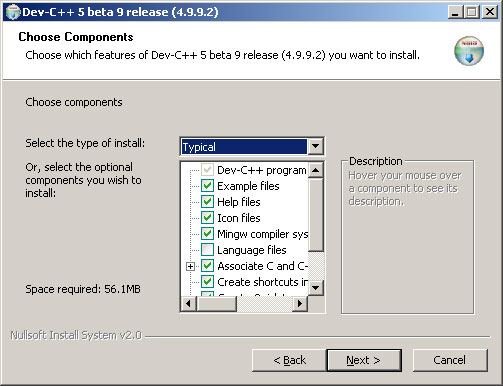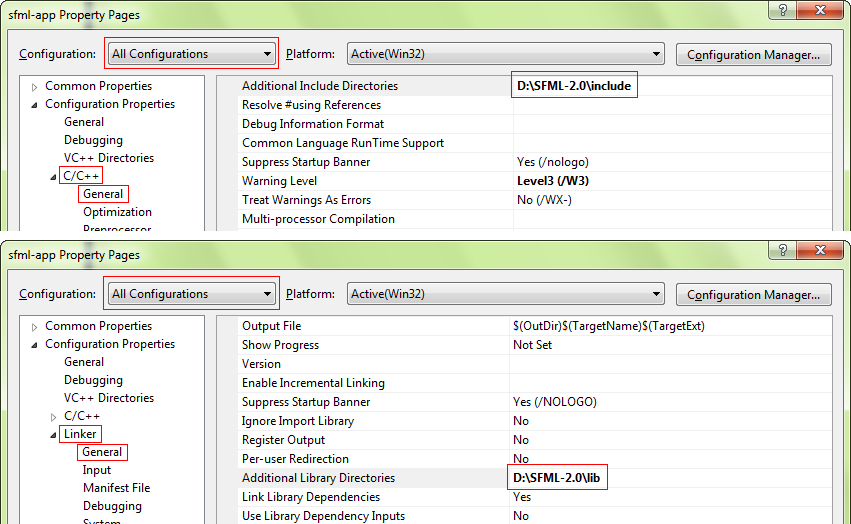-
Dev C++ Link Ing Files카테고리 없음 2021. 5. 29. 02:28
The most basic multi-module monster project in C programming has two source code files. Each file is separate — written, saved, and compiled individually — but eventually brought together as one unit by the linker. The linker, which is part of the build process in Code::Blocks, is what creates a single program from several different modules.
What’s a module?
A module is a source code file and its compiled object file. Together, the source code and object files are a module. Then the various object files are linked to build a program. The entire operation starts with separate source code files.
THE MAIN.C SOURCE CODE FILE
Jun 22, 2010 Hi guys, I'm totally new to C. I had used a little bit of Java before but i'm no expert. I am currently reading through 'SAMS teach yourself C' and in the 6th chapter there is an example of using the class declaration in.hpp file and the implementation of that class in.cpp file. But there isnt anything saying how to link the.hpp file with the.cpp file in the IDE. I am using codeblocks.
Jun 14, 2011 3) scan across the list until you find the library you want to link, (.if libcurl.a is not in the default /lib/ folder, then select the correct folder), Double click on it, that will place libcurl.a in the linker list, repeat process for more libraries, 4) click on the OK button to close that window, 5). To use a DLL by implicit linking, client executables must obtain these files from the provider of the DLL: One or more header files (.h files) that contain the declarations of the exported data, functions, and C classes in the DLL. The classes, functions, and data exported by the DLL must all be marked declspec(dllimport) in the header file. Jul 31, 2008 How to link a static library into my program by Dev-C? If you are using the main C distribution of wxWidgets, Feel free to ask any question related to wxWidgets development here. This means questions regarding to C and wxWidgets, not compile problems. Modern Development Environment Delivered. Koding lets your organization create and share fully automated dev environments on any infrastructure for modern. Bloodshed Dev-C is a full-featured Integrated Development Environment (IDE) for the C/C programming language. It uses Mingw port of GCC (GNU Compiler Collection) as its compiler. It creates native Win32 executables, either console or GUI. Dev-C can also be used in combination with Cygwin. Oct 27, 2015 Assuming you have installed the msmpisdk package, you can add the include directory for Dev-C under Project OptionsDirectoriesInclude Directories. If you have installed the msmpisdk package using the default option, the header file mpi.h should be in the following directory 'C:Program Files (x86)Microsoft SDKsMPIInclude'.

Exercise 1: Fire up a new project in Code::Blocks named ex2401. Create the project as you normally would: Type the source code from The main.c Source Code File into the editor as the contents of the main.c file. Save the file.
Don’t build yet! After all, the code references the second() function, which doesn’t seem to exist anywhere. It’s prototyped, as is required for any function that’s used in your code, but the second() function is found in another module. To create that module in Code::Blocks, follow these steps:
Save the current project, ex2401.
Choose File→New→Empty File.
Click the Yes button when you’re prompted to add the file to the active project.
The Save File dialog box appears.
Type alpha.c as the filename and then click the Save button.
The new file is listed on the left side of the Code::Blocks window, beneath the Sources heading where the main.c file is listed. A new tab appears in the editor window, with the alpha.c file ready for editing.
Click the alpha.c tab to begin editing that file.
Type the source code from The alpha.c Source Code File into the alpha.c file in Code::Blocks.
Save the ex2401 project.
Build and run.
THE ALPHA.C SOURCE CODE FILE

Here’s the output you should see in the test window on your computer:
The two source code files aren’t “glued together” by the compiler; each source code file is compiled individually. A separate object code file is created for each one: main.o and alpha.o. It’s these two object code files that are then linked together, combined with the C standard library, to form the final program.
The main module for a multi-module C program is traditionally named main.c. That’s probably why Code::Blocks names the first (and, often, only) project source code file main.c.
Only source code files contained within the same project — found beneath the Sources branch — are linked together.
To compile and link source code files in a terminal window, use the following command:
This command compiles the source code files main.c and alpha.c, links together their object files, and then creates as output (-o) the program file ex2401.
Latest Version:
DEV-C++ 5.11 LATEST
Requirements:
Windows XP / Vista / Windows 7 / Windows 8 / Windows 10
Author / Product:
Bloodshed Software / DEV-C++
Old Versions:
Filename:
Dev-Cpp 5.11 TDM-GCC 4.9.2 Setup.exe
MD5 Checksum:
581d2ec5eff634a610705d01ec6da553
Details:
DEV-C++ 2020 full offline installer setup for PC 32bit/64bit
The app is an open-source IDE environment, offering software solutions and the necessary tools for C++Dev C++ Link Ing Files Download
app development. However, be aware that its toolset is focused more on novices and basic programming, and that open source community has not updated its toolset for a considerable time. Still, what is present in its latest version represents a highly-capable C++ IDE that could be used for years without encountering any issue.
If you are a novice, are a student who wants to create C++ project in a stable and easy to use software environment, or even if you are a seasoned programmer who wants to access C++ programming inside small IDE that will not strain your computer resources, DEV-C++ represents a perfect choice. It has all the required tools and feature sets for creating small to mid-sized apps.
It runs on all modern versions of Windows and can be used without any restrictions for free. It was originally developed as an open-source fork of the Bloodshed Dev-C++ IDE.
Installation and Use
Even though DEV-C++ is filled with advanced compiler, debugger and a wide array of dev tools, it’s installation package is quite small (only around 50 MB) and therefore can be easily installed on any modern Windows PC or laptop. Just follow the onscreen instructions, and in mere seconds DEV C plus plus will be ready for running. Other more developed modern IDE environments, on the other hand, require much more storage space, and their installation can run for minutes.
Once up and running, you will be welcomed in a user-friendly interface that can be additionally customized to better fit your needs. The main window of the app follows the basic structure of many other modern IDE environments, with top row of dropdown menus and buttons that are shortcuts to its many built-in tools, a large vertical three-tabbed area for managing Projects, Classes and Debug listings, and of course, the main project area (with support for tabs) where you can start programming your apps. Both the app and the current project can be customized extensively. App Options window features tabs for Genera, Fonts, Colors, Code Insertion, Class Browsing, and Autosave customizations. Environment Options feature tabs for General, Directories, External Programs, File Associations, and CVS support customization.Dev C++ Programs
Features and HighlightsC++ Linking Header Files
- Fully-featured IDE for developing C++ apps.
- User-friendly interface with many tools for managing project development.
- Resource-light and unobtrusive feature set.
- Focused on novices and mid-level programmers who want stability and reliability.
- Powerful compiler and debugger.
- Compatible with all the modern versions of Windows OS
Dev C++ Linking Header Files